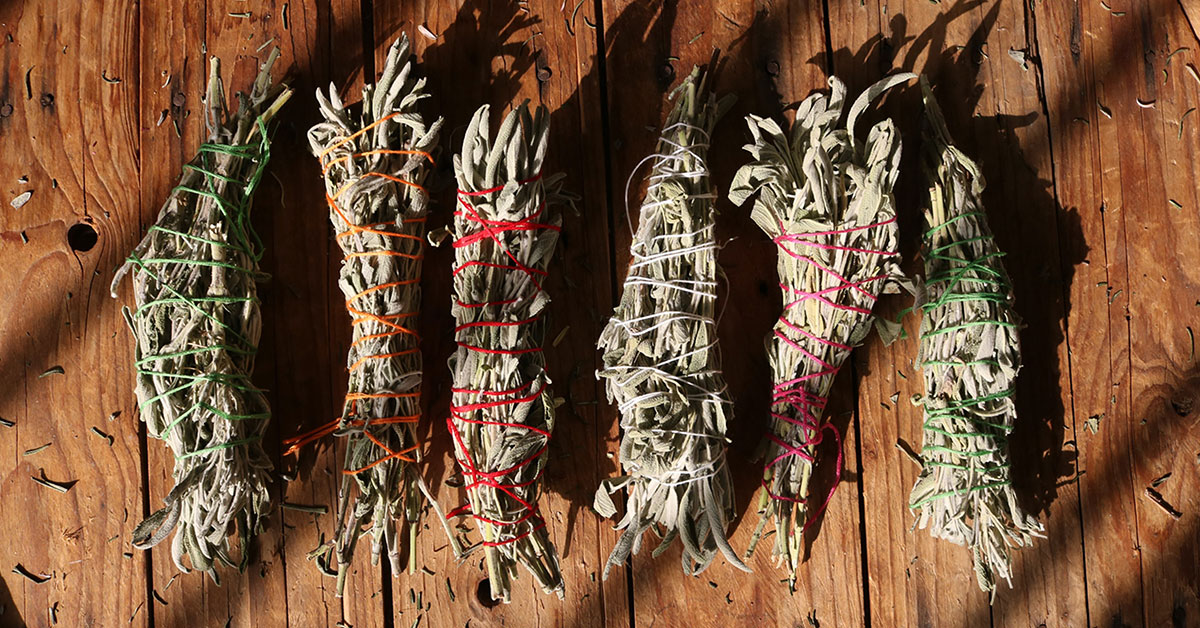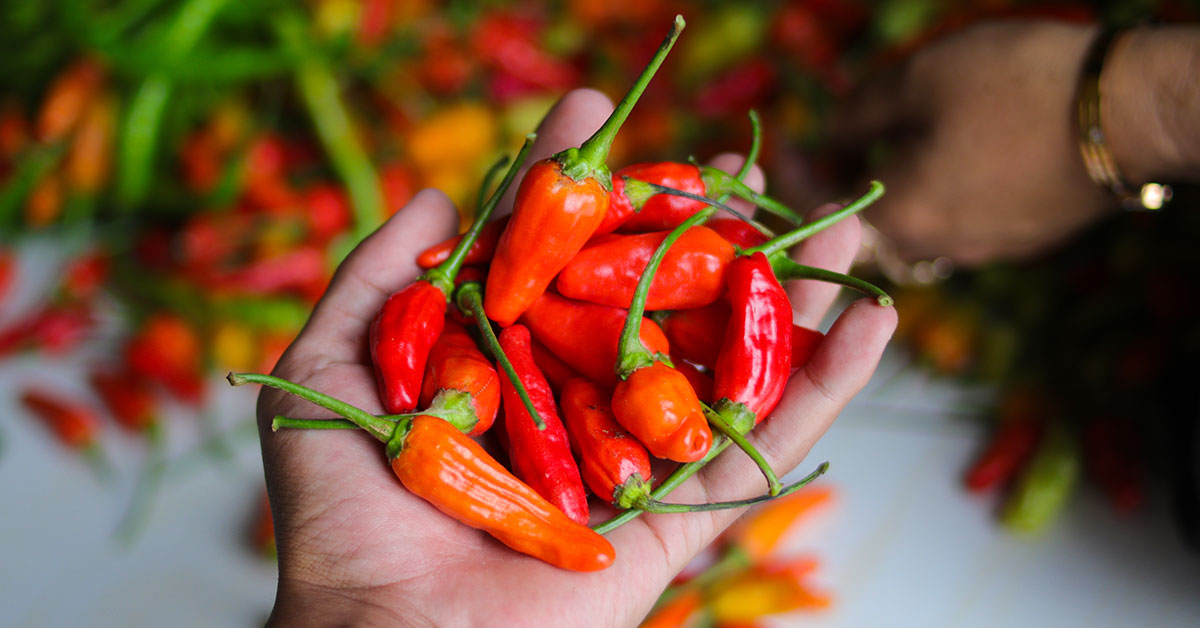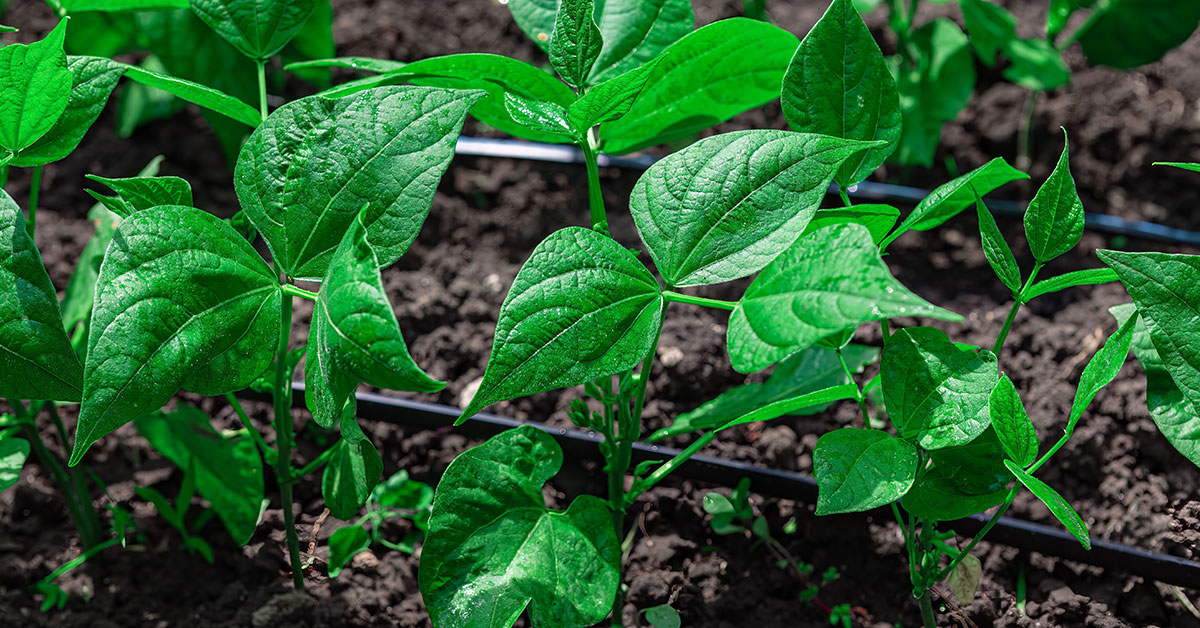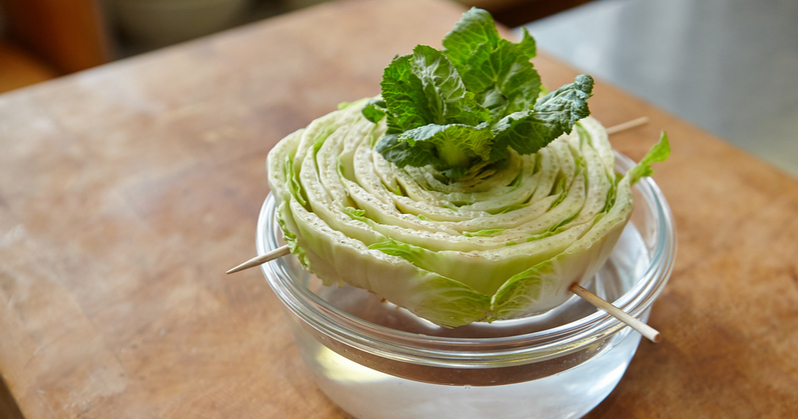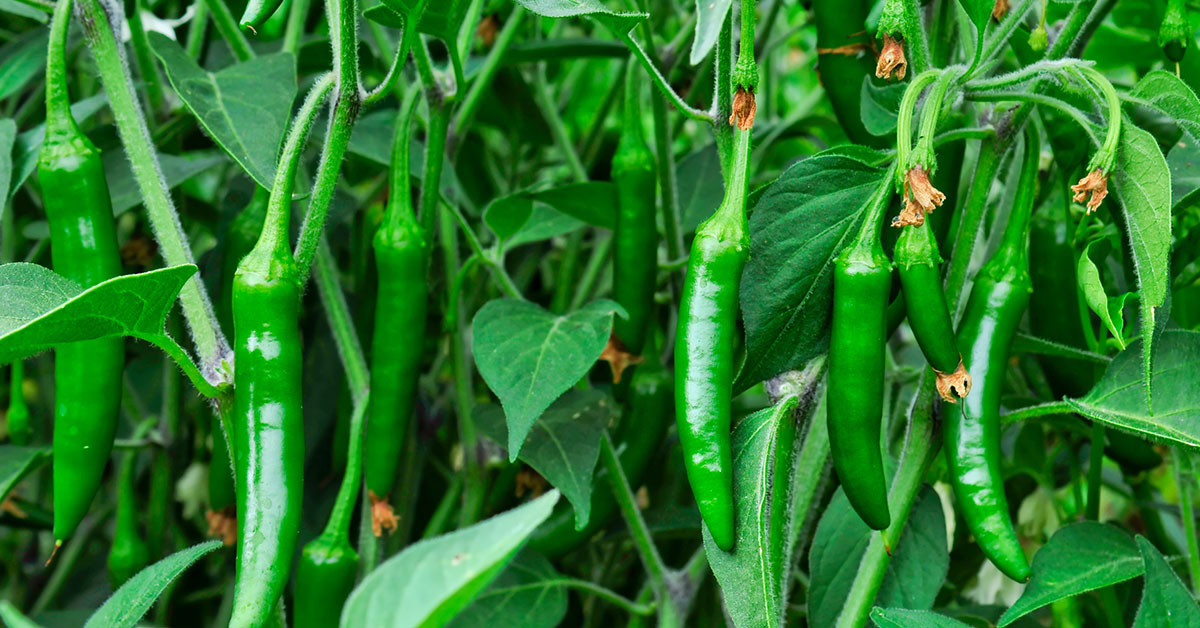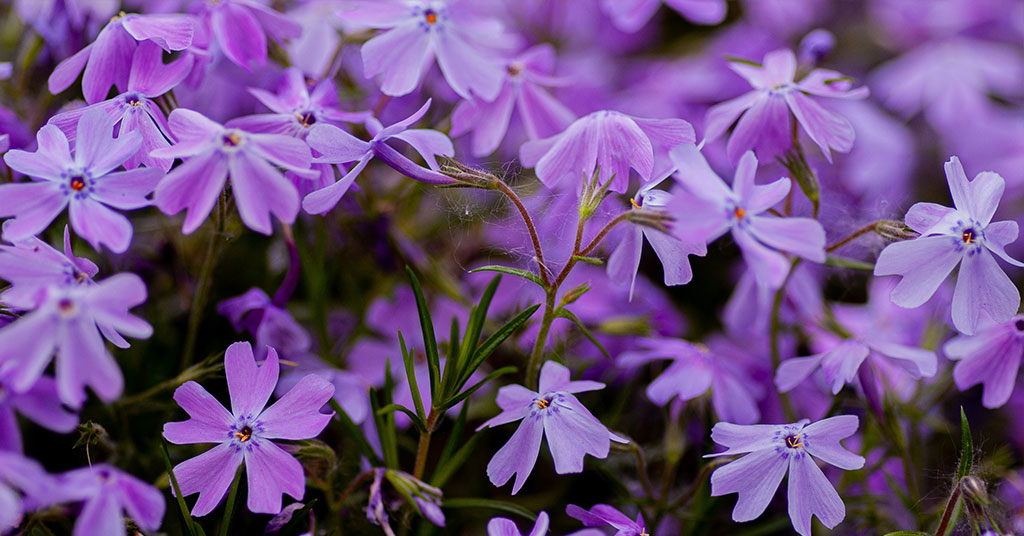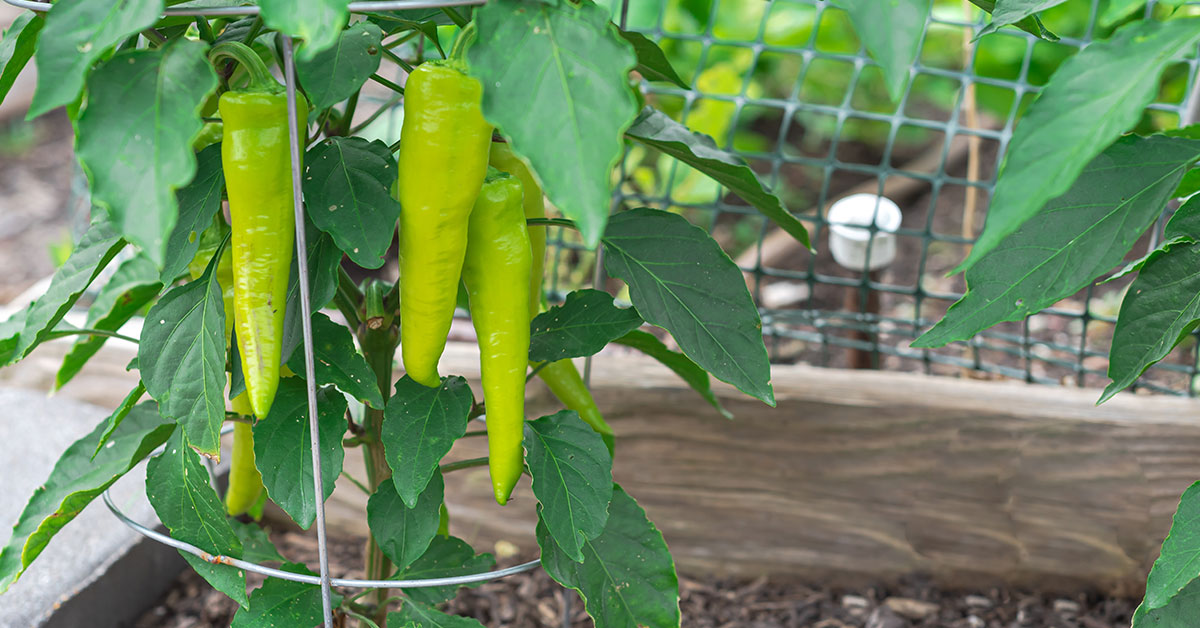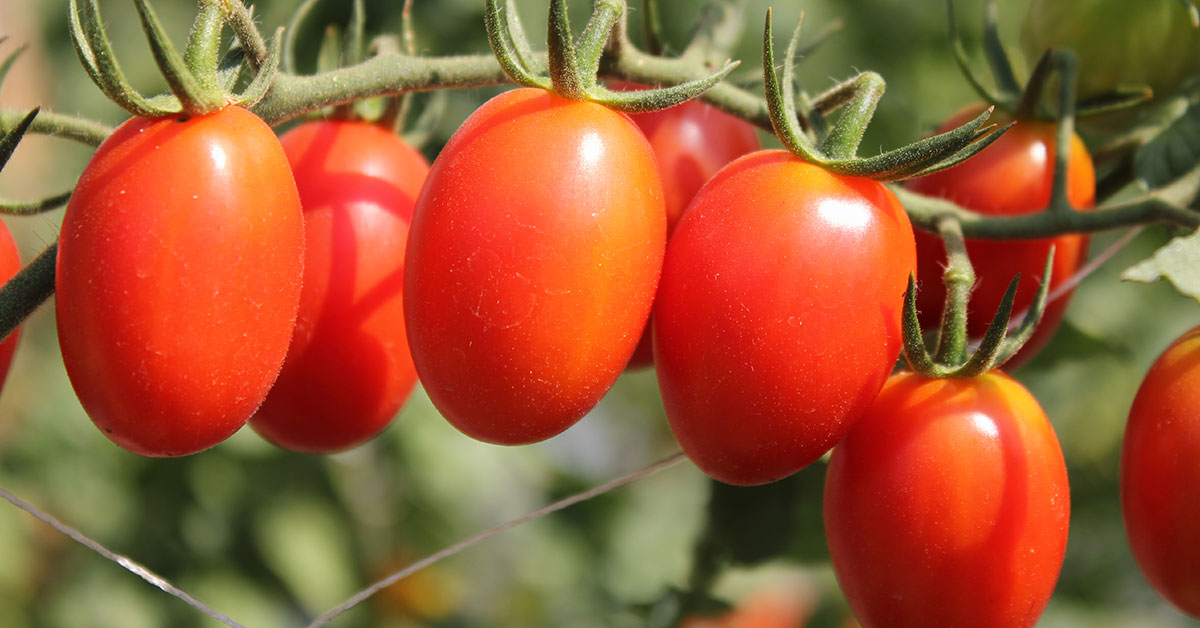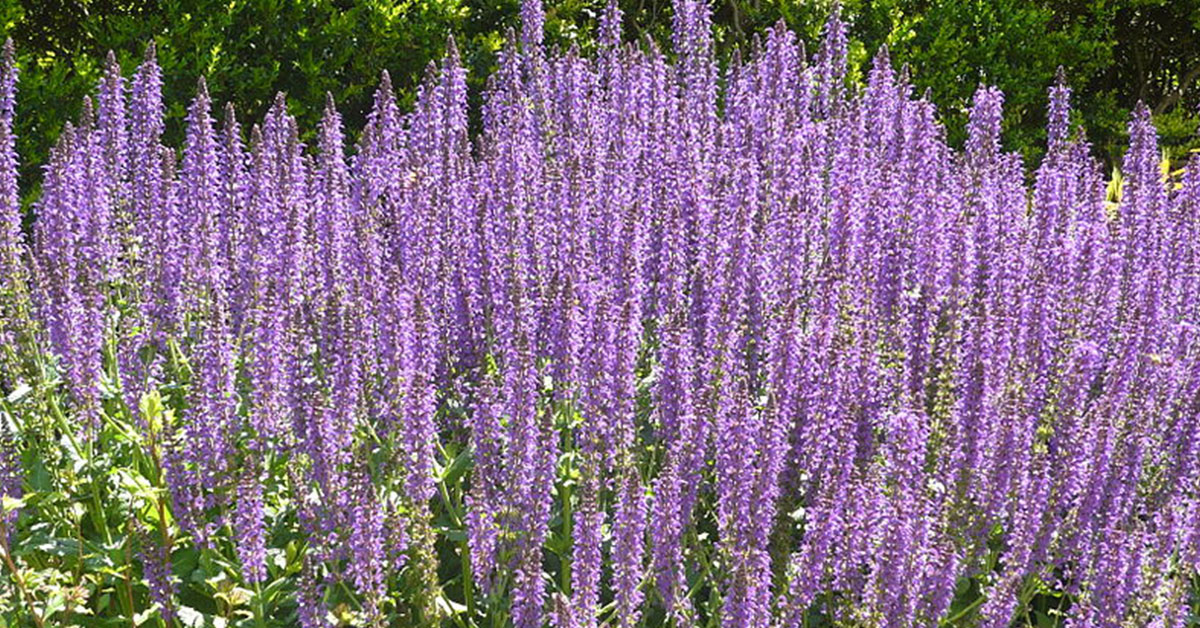Growing medicinal herbs in your backyard is a wonderful way to create a natural pharmacy right at your fingertips. These herbs not only add beauty and fragrance to your garden but also offer a variety of health benefits. From easing digestive issues to soothing anxiety, many herbs have been used for centuries in traditional medicine for their healing properties.
In this article, I’ll introduce you to ten medicinal herbs that are easy to grow and incredibly beneficial. These herbs can be used in teas, salves, and other home remedies, making them versatile additions to your garden. Let’s explore these amazing plants and how they can enhance your health and well-being!
Lavender
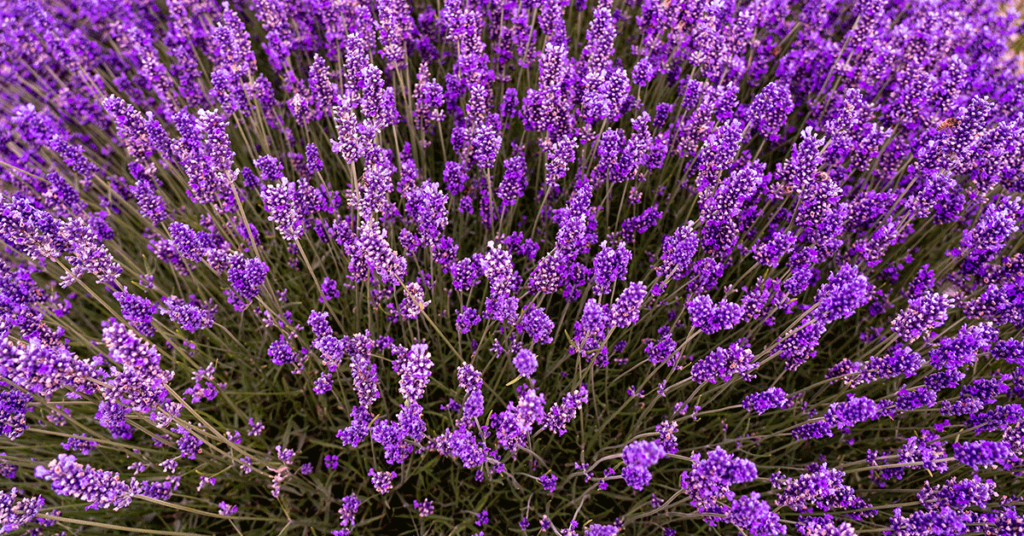
Lavender is well-known for its calming and relaxing properties. The aromatic flowers and leaves can be used to make teas, essential oils, and sachets that help reduce anxiety and promote better sleep. Lavender oil is also widely used in aromatherapy for its soothing effects on the mind and body.
I love growing lavender in my garden because it’s not only beautiful but also incredibly useful. A simple lavender tea can help ease headaches and stress, making it a great herb to have on hand. The scent of fresh lavender is wonderfully calming, and the plants attract pollinators, adding even more benefits to your garden.
Peppermint
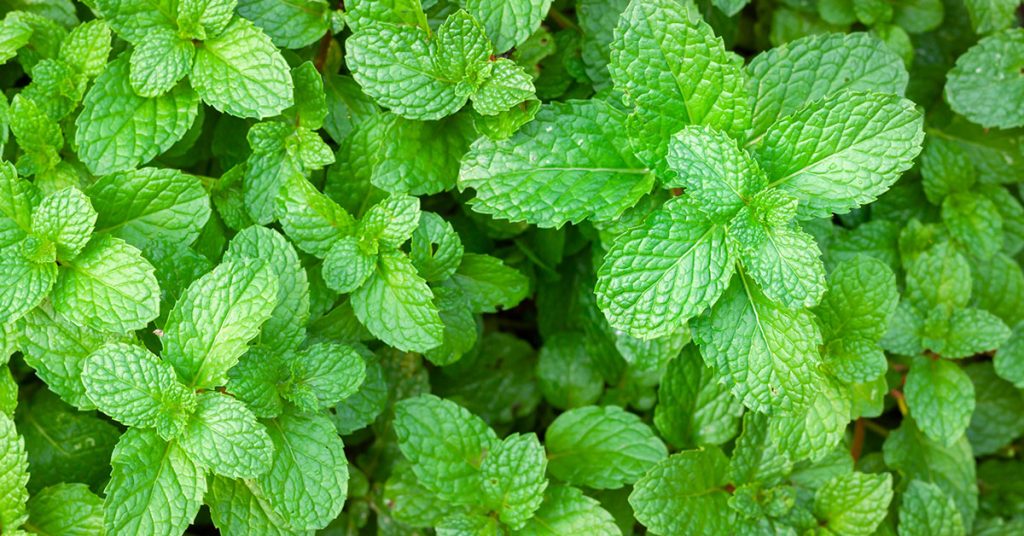
Peppermint is a fantastic herb for digestive health. Its leaves can be used to make a refreshing tea that helps alleviate symptoms of indigestion, bloating, and nausea. Peppermint oil is also known for its ability to relieve headaches and muscle pain when applied topically.
I always have a pot of peppermint growing on my patio. It’s easy to care for and spreads quickly, so it’s best grown in containers. I find that peppermint tea is perfect for soothing an upset stomach, and the fresh leaves can be added to salads and desserts for a burst of flavor. Plus, its invigorating scent is a great pick-me-up!
Echinacea
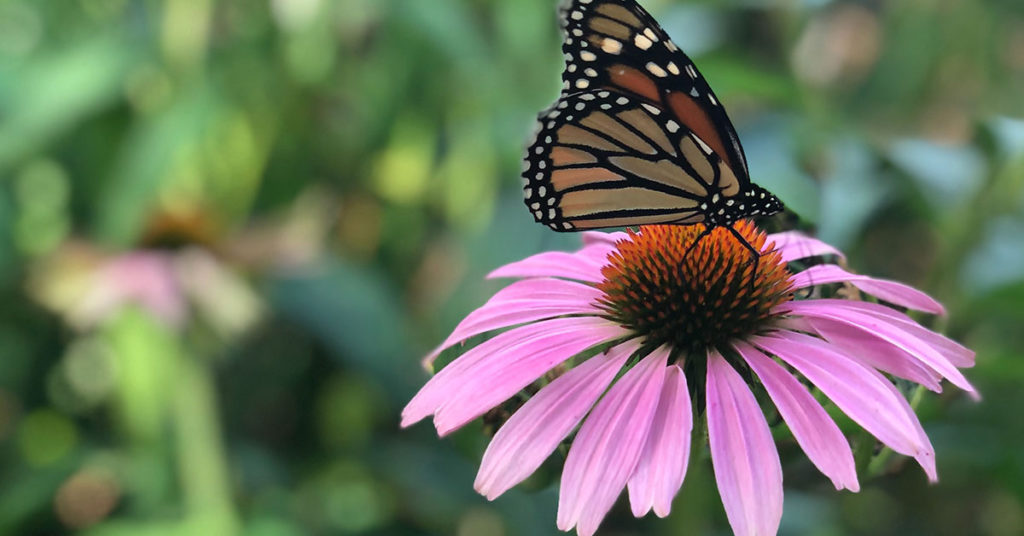
Echinacea, also known as coneflower, is renowned for its immune-boosting properties. The roots, leaves, and flowers can be used to make teas and tinctures that help fight off colds and flu. Echinacea is believed to stimulate the immune system, making it a popular choice for natural cold remedies.
I love the striking appearance of echinacea in my garden. Not only does it add vibrant color, but it’s also a powerful herb for maintaining health. During cold season, I often make echinacea tea to help ward off illness. The plant itself is hardy and easy to grow, thriving in full sun and well-drained soil.
Chamomile
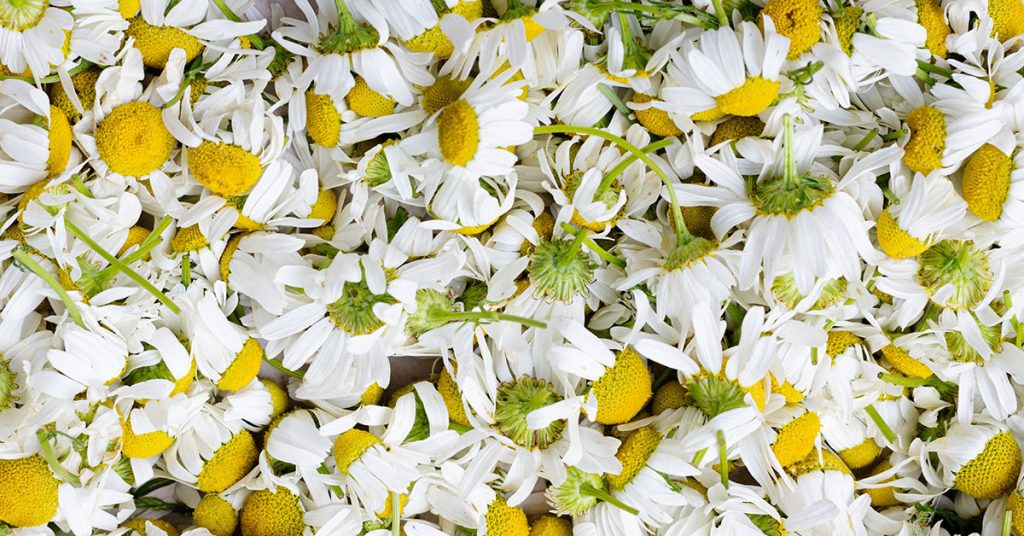
Chamomile is famous for its gentle, soothing effects. Chamomile tea is a popular remedy for insomnia and anxiety, helping to relax the mind and body. It’s also used to relieve digestive issues and can be applied topically to soothe skin irritations and minor wounds.
I enjoy growing chamomile because of its lovely, daisy-like flowers and its multitude of uses. A cup of chamomile tea before bed can make a huge difference in the quality of sleep. The flowers are easy to harvest and dry, ensuring a steady supply throughout the year. Chamomile plants thrive in sunny spots with well-drained soil.
Calendula

Calendula, also known as pot marigold, is a versatile herb with powerful healing properties. The bright orange and yellow flowers can be used to make salves and creams that soothe skin irritations, cuts, and burns. Calendula is also known for its anti-inflammatory and antimicrobial properties.
I love using calendula in homemade skincare products. The petals are easy to infuse in oil, creating a natural remedy for dry or irritated skin. Calendula is also beautiful in the garden, attracting pollinators and adding a splash of color. It’s easy to grow in full sun and well-drained soil, making it a staple in my herb garden.
Lemon Balm
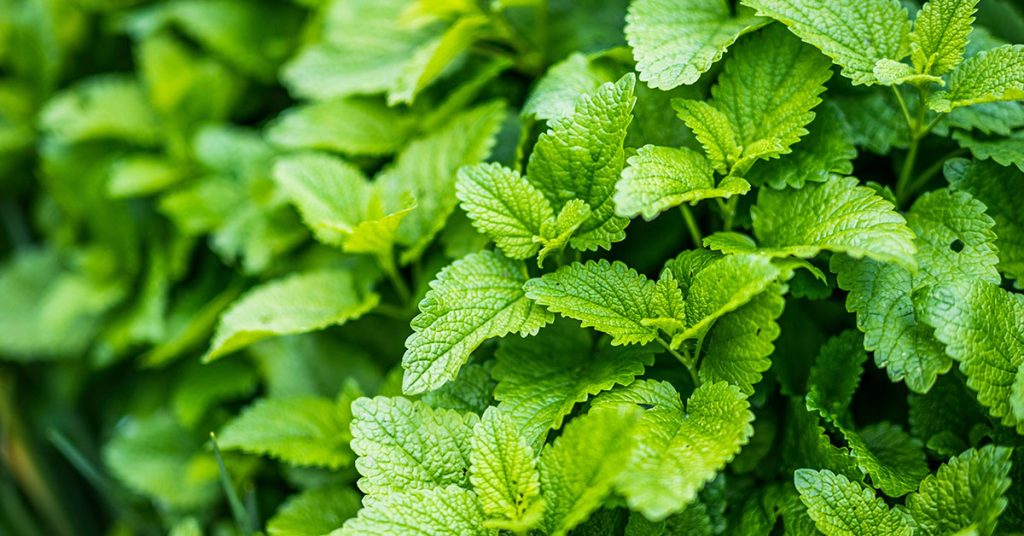
Lemon balm is a delightful herb with a refreshing lemon scent. It’s known for its calming effects and is often used to reduce stress and anxiety. Lemon balm tea can help improve sleep and is also effective in soothing digestive issues and cold sores.
One of my favorite things about lemon balm is its versatility. It’s easy to grow and spreads quickly, making it a great addition to any garden. I enjoy making lemon balm tea to unwind after a long day, and the fresh leaves are perfect for adding a citrusy flavor to salads and desserts. Its calming properties make it a must-have in my garden.
Sage
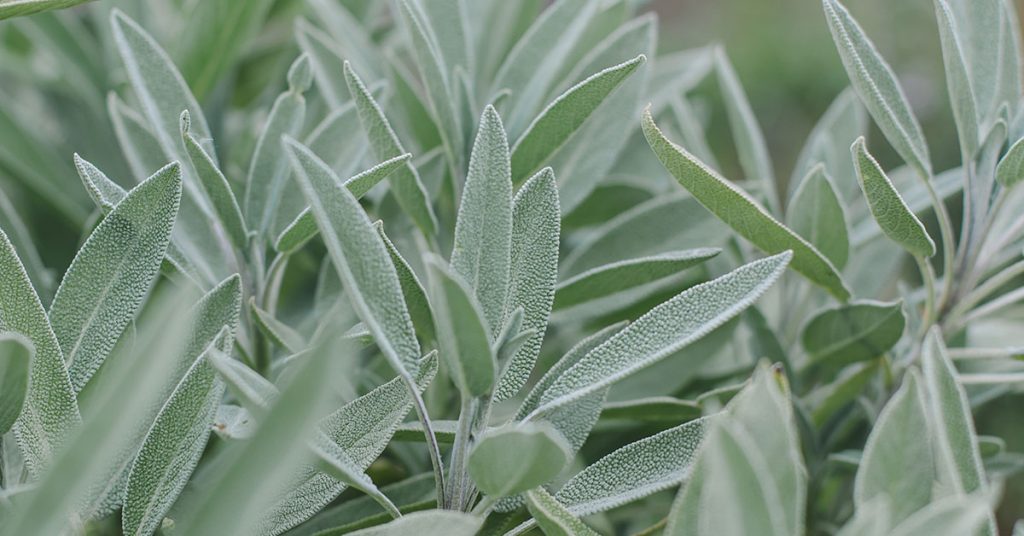
Sage is a potent herb with a wide range of medicinal uses. It’s known for its ability to improve digestion, reduce inflammation, and enhance cognitive function. Sage tea can soothe sore throats and is often used as a natural remedy for colds and respiratory issues.
I love incorporating sage into my daily routine. The fresh leaves are great for cooking, adding a rich flavor to dishes. Sage tea is my go-to remedy for sore throats and digestive discomfort. It’s a hardy plant that thrives in well-drained soil and full sun, making it an easy and beneficial addition to my garden.
Thyme

Thyme is a powerful herb with strong antimicrobial and antiseptic properties. It’s commonly used to treat respiratory infections, coughs, and colds. Thyme tea can help relieve sore throats and bronchitis, and the essential oil is effective in treating skin infections and wounds.
Growing thyme in my garden has been incredibly rewarding. The plant is hardy and easy to care for, thriving in sunny spots with well-drained soil. I love using thyme in cooking for its robust flavor and making thyme tea when I’m feeling under the weather. Its medicinal properties make it an essential herb in my collection.
Basil
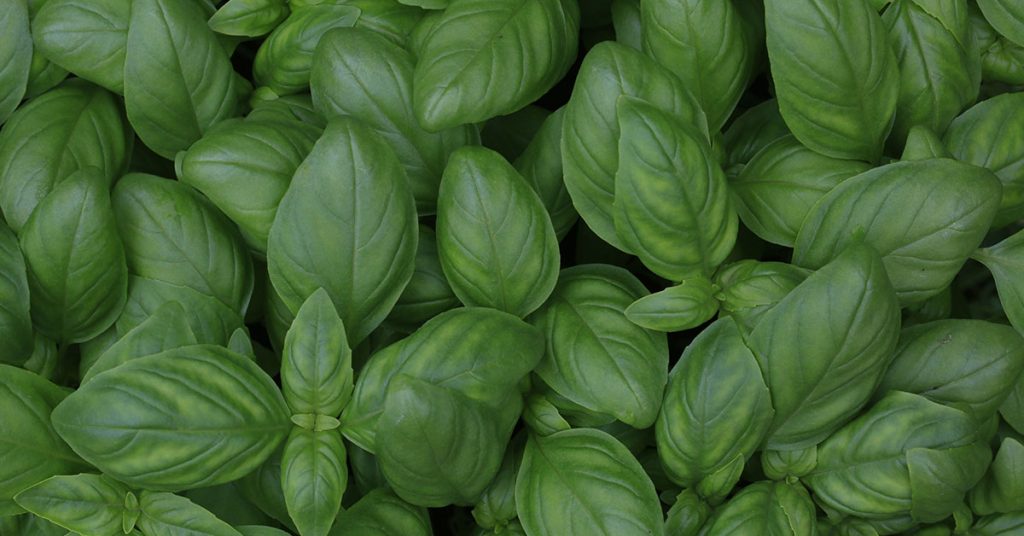
Basil is not only a culinary delight but also a medicinal powerhouse. It’s known for its anti-inflammatory and antibacterial properties. Basil can help with digestive issues, reduce stress, and alleviate symptoms of respiratory conditions. Fresh basil leaves can be used to make tea or added to dishes for a health boost.
I always have basil growing in my garden for its incredible flavor and health benefits. It’s perfect for adding to salads, pasta, and homemade pesto. Basil tea is a soothing remedy for digestive problems and stress relief. This versatile herb thrives in full sun and well-drained soil, making it a favorite in my garden.
St. John’s Wort
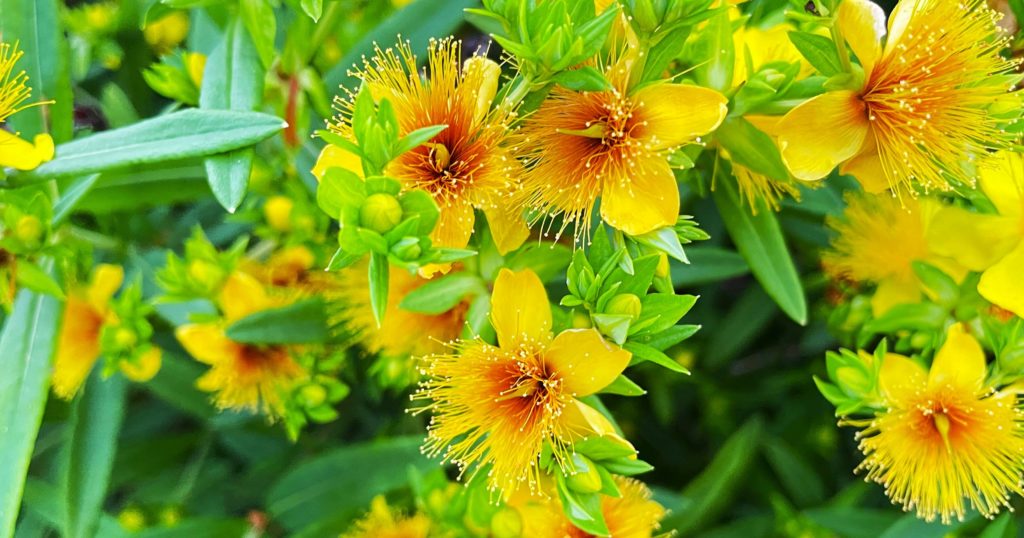
St. John’s Wort is famous for its mood-enhancing properties and is often used to treat mild to moderate depression. It’s also known for its anti-inflammatory and antiviral properties. St. John’s Wort tea or tincture can help with mood disorders, nerve pain, and wound healing.
I find St. John’s Wort to be a fascinating addition to my herb garden. The bright yellow flowers are not only beautiful but also incredibly beneficial. Making tea or oil infusions from St. John’s Wort can provide a natural remedy for mood enhancement and pain relief. It thrives in well-drained soil and full sun, adding both beauty and utility to my garden.
